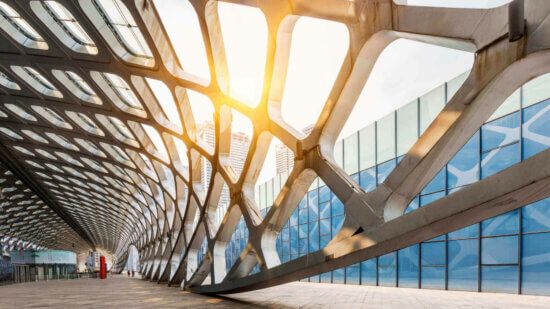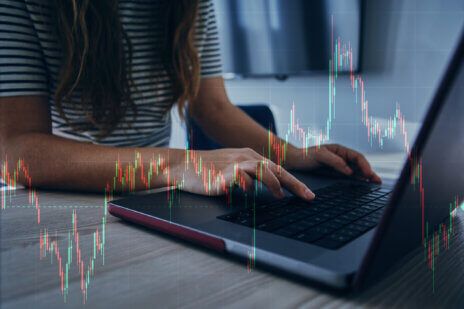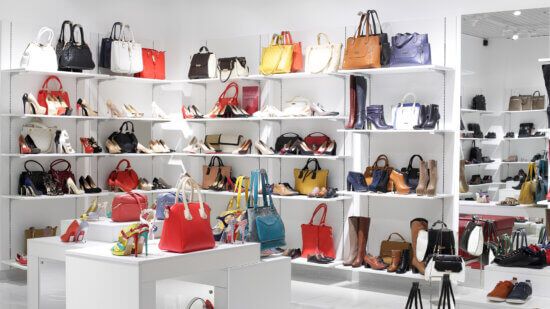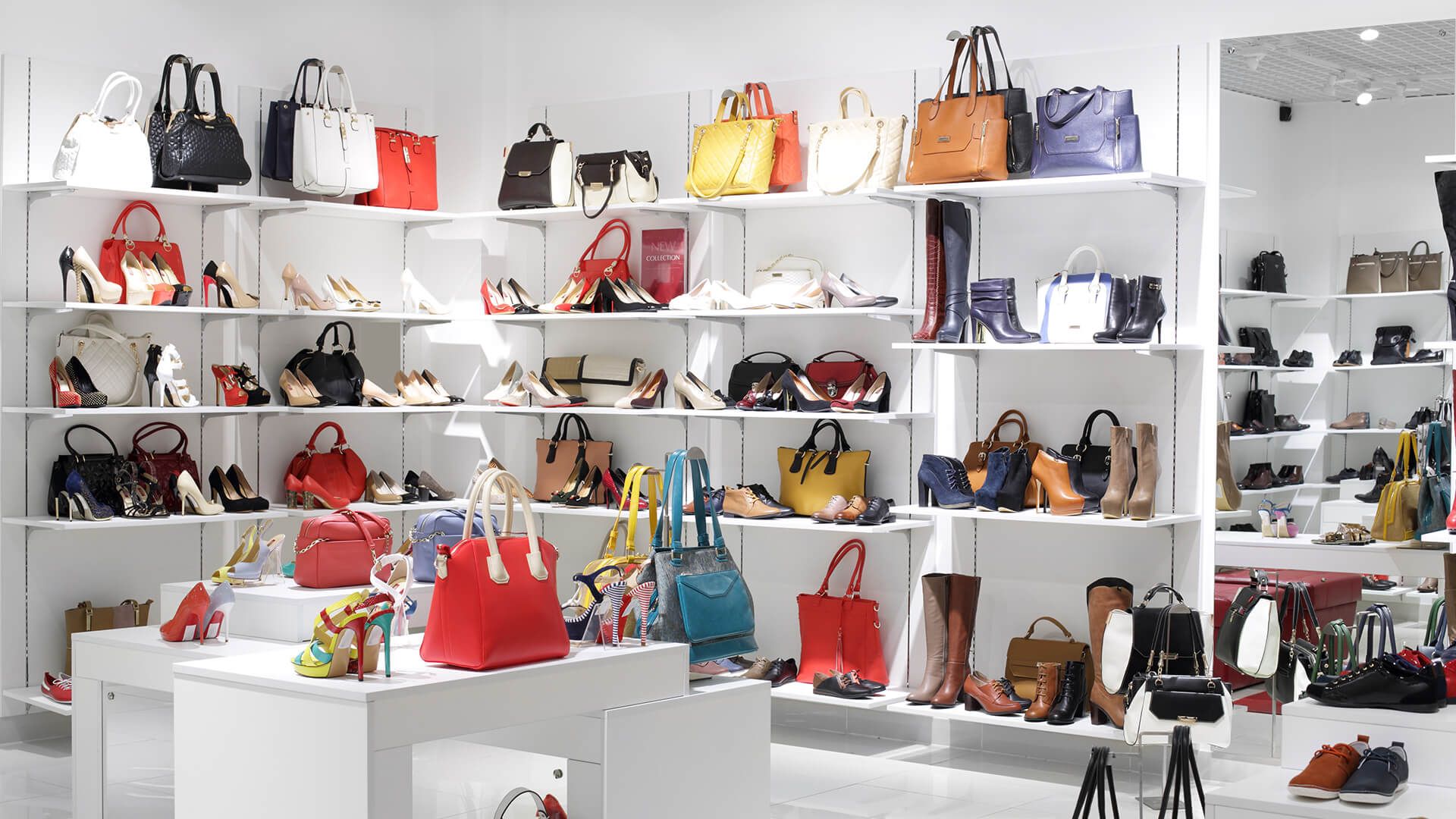
International equities are a much more differentiated set of companies and industries than the U.S., which can help investors construct a diversified portfolio in the midst of global volatility.
For more than the last decade, the United States (U.S.) equity market has outperformed international markets in terms of investment returns. The launching pad for this extended run was rooted in the world exiting the financial crisis with central banks implementing unconventional monetary policies such as quantitative easing, which artificially suppressed interest rates. But the most constructive questions arising from recent history must be, why should you invest outside of the U.S.? And, perhaps more targeted, why should you think about allocating abroad?
The Drivers of U.S. Outperformance
We believe the actions post-financial crisis materially changed the dynamic of U.S. equity performance versus the international markets. To illustrate this, the following chart looks at the forward P/E of the S&P 500 Index relative to the MSCI ACWI ex-US Index, which is a broad proxy for the international markets. Back in December 2009, the ratios of these indexes were similar, with the S&P at 14.2x and the MSCI ACWI at 13.9x.
Past performance does not guarantee future results.
Source: Bloomberg
Flash ahead to the end of 2024, the S&P 500 multiple expanded 52%, and the MSCI ACWI contracted half-a-multiple point. Quantitative easing helped the U.S. expansion since it is a more growth-oriented index with technology companies leading the way. Lower interest rates mean that future discounted cash flows can produce a higher value. So that helped fuel some of the U.S. outperformance. The other major variable of the relative equation between the U.S. and international equities was index construction. While technology companies heavily influence the U.S., the MSCI ACWI ex-US’s biggest sector is financials, which comprises about 23% of the index. When interest rates were 0% in the U.S., they were negative in Europe and Japan, two of the main countries that are represented in the MSCI ACWI ex-US. Typically, when you remove an important revenue and earnings driver for the largest sector in an index, then you’re going to create an earnings growth headwind.
Another factor in U.S. outperformance is the U.S. dollar, which will always have buyers since it is the reserve currency. The dollar appreciated about 36% from December 2009 to the end of last year, which made it even more difficult for international stock portfolios with their currencies falling in addition to the headwinds mentioned above. Some of these valuation issues tend to be cyclical, and it will be interesting to see the U.S. fiscal position and how other countries react.
Earnings Growth Reveals a Diverse Narrative
Equity prices should eventually track earnings. Since the normalization of interest rates, we see the earnings growth in two of the main international markets, Europe and Japan, has kept pace with that of the U.S. In fact, Japan’s EPS growth has exceeded that of the U.S., even in USD terms. This means the case for international isn’t just about a valuation discount.
Relative Earnings in Europe and Japan
Past performance does not guarantee future results.
Source: Bloomberg
There are a few drivers of this earnings outperformance. Per analysis from Goldman Sachs, from January 2022 to the end of February 2025, European banks actually outperformed the Magnificent 7, with the outperformance largely being earnings driven.
The Benefits of Global Revenue Diversification
Howard Markowitz once said that “diversification was the only free lunch in investing.” This was to bring the point home that return streams from different sources would be additive and mitigate risk. The same can be true when finding companies that have diversified revenue streams. The topic of diversification has obviously moved to the forefront in 2025 as tariffs and trade wars have weighed on growth expectations and highlighted the downside potential in highly concentrated markets like the U.S. International markets allow investors to find high-quality companies with diverse revenue streams.
European Companies Are Truly Global
Source: Morgan Stanley
We show the percentage of foreign revenue and domestic revenue for the U.S., Europe, Japan, and emerging markets (EM). Let’s put a spotlight on Europe, which derives more than half of its revenue from outside of the continent. Many investors might associate buying a European company with buying the European economy. And in many cases, that’s not really what you’re buying. You’re buying a global leader with a diversified revenue stream and frequently a superior valuation. Investors should recognize that there are a lot of unique companies outside of the U.S. that are operating globally and have very strong business models. That’s what we’re looking for as active investors.
International Sector Focus: Healthcare
There is an elite group of European companies in the healthcare sector that are at the apex of innovation. Healthcare is a major part of the global economy with spending approximating $10 trillion a year, according to the World Health Organization. That’s roughly 10% of global GDP. Due to the non-discretionary nature of healthcare spending, its contribution to the global economy is much less cyclical and much more resilient.
Innovation in Healthcare
Some of the 21st century’s biggest breakthroughs are happening in healthcare.
Steady, stable, and resilient cash flows are staples of fundamental research. But what is underappreciated in the investment world is the degree of innovation. Highly innovative companies are developing the next blockbuster drug. They’re building next-generation pipelines of drugs. There are highly innovative companies developing or addressing some of these structural mega-trends within healthcare, such as obesity or heart disease. It’s becoming increasingly complex to research and develop a drug, so there are innovative companies that are helping other companies to navigate that increasingly complex landscape.
Structural Mega-Trends
| CHRONIC DISEASE | GLOBAL AGING | COMPANION ANIMALS |
|---|---|---|
| Obesity | Screening/diagnostics | Premium pet food |
| Diabetes | Alzheimer’s | Animal health (drugs) |
| Cardiovascular disease | Cancer | |
| Kidney Disease | Myopia | |
| Cataracts |
There are structural mega-trends and built-in drivers in healthcare that will sustain growth in selected categories for decades to come. These trends also defy lifecycle fade and patent revenue cliffs. There’s a variety of structural mega trends that are driving growth, like demographics and aging, which are inevitable trends that are benefiting structural growth in healthcare. But you also have other structural trends, such as diabetes, obesity, cardiovascular disease, and eye disease. Obesity is a highly prevalent disease, with 100 million patients in the U.S. and over a billion globally. GLP drugs, which were initially developed to treat other conditions such as diabetes, are in the middle of the pack in terms of global spending but are the fastest-growing major category based on projected growth rates.[1]
The Opportunity in International Equities
Investors have been underweighting international equities for the past several years, and, for the most part, it has served them well. However, the dynamic between U.S. and international stocks is rapidly shifting and evolving. Investors should seek to diversify by sector, style, and geography and target quality companies with catalysts for success selling at attractive valuations. International equities are a much more differentiated set of companies and industries than the U.S., which can benefit investors in the form of a diversified portfolio.
[1] Source: IQVIA
Discover more about:
More Insights

FOMC Update: Fed Approves Third Consecutive Rate Cut, Projects Slower Pace

Municipal Bond Trends: Baby Boomers and New Issuance for the Holidays

Luxury Brands Navigate China Slowdown and Tariff Pressures

Thornburg Investment Income Builder Fund – 4th Quarter Update 2025

Extract Maximum Income Using Active Management



